The automotive industry is rapidly changing. New technologies like the Internet of Things (IoT), artificial intelligence (AI), and blockchain are paving the way for autonomous vehicles. Industry leaders like Toyota, BMW, Mercedes-Benz, Ford and so on are turning to blockchain to make vehicles autonomous and increase the efficiency of their supply chains. Below are just a few of the blockchain automotive use cases that are quickly changing the market.
General Motors (GM) Pairs with Spring Labs to Fight Synthetic Identity Fraud

Synthetic identity fraud is the act of using information from multiple identities, and then combining it to create a fake identity. With these identities, fraudsters can acquire credit cards and take out car loans. This type of identity fraud costs the automotive industry millions of dollars a year, and GM is now turning to blockchain to stop it. The Spring Protocol is being developed by Spring Labs to help increase information sharing within the automotive industry. With more information available, it will be easier for car manufacturers to detect identity fraud.
Entities Involved: General Motors, Spring Labs
Project status: $15 million has been raised to fund the project, and it is currently in development. There is no word yet on when it will be ready to be deployed.
Sources: Partnership announcement
Porsche Teamed Up with XAIN to Bring Blockchain into Their Vehicles

Porsche has paired with blockchain startup, XAIN, to implement blockchain technology in their vehicles. The blockchain would allow users to unlock their vehicles with an app, as well as provide easier automated payment systems. The two companies have also stated that the technology could be developed even further to include autonomous driving.
Entities involved: Porsche, XAIN
Project status: Currently the project is in its testing phase. There has been no news as to when Porsche plans to implement the technology into its newer vehicles.
Automotive Industry Giants Unite to Form the Mobility Open Blockchain Initiative (MOBI)
MOBI is a new consortium made up of 37 major automotive and technology companies to build blockchain solutions for the automotive industry. Ford, BMW, and General Motors are just a few of the automotive giants who have joined. IBM is also a member. MOBI members hope to make cars more affordable, safer, and widely accessible with blockchain technology.
Entities involved: IBM, BMW, Ford, GM, and many more
Project status: At the moment, nothing significant has arisen from the MOBI consortium, but seeing as it was only founded last year, there is sure to be a significant amount of projects in the works.
Source: MOBI
VeChain Rebrands as VeChain Thor and Announces Partnership with BMW
There is a NDA in place so we r not entitled to reveal more. BMW Asia was VERY kind to allow us to reveal their partnership w/ @vechainofficial yesterday. We have to wait till the project is over to share more details, just like the other projects. Kudos to them! pic.twitter.com/URulBVWN4v
— Sarah (@Sarah_Nabaa) February 27, 2018
VeChain has rebranded and renamed itself VeChain Thor, in addition to announcing its newest partnership with German automaker BMW. Although no projects have been announced by the pair yet, it is safe to assume that VeChain and BMW are working to bring blockchain to BMW. The partnership was announced following a similar partnership of IOTA with Volkswagen.
Entities involved: VeChain Thor, BMW
Project status: Since the announcement of the partnership last year, both VeChain and BMW have been relatively quiet as to any projects they may or may not be working on. Nonetheless, given the partnership between IOTA and Volkswagen, it is safe to assume that there is some healthy competition in the automotive and blockchain industry.
Sources: VeChain Thor press release
Koopman Partners with IBM to Provide a More Efficient Automotive Supply Chain
Think about all the various cogs in the automotive supply chain. You have a car, its body, its motor, its tires, electronics, etc. All of these materials are produced all around the world. Tires may come from Asia, while the body of a vehicle may be produced in the U.S. Logistics involved in international transactions can often be extremely difficult to coordinate.
Koopman has partnered with IBM to build the first vehicle delivery in a digital process. This means parts can be tracked as they make their way around the world. With Koopman and IBM’s system, it will be easier to tell where parts are, how many of them, and so much more. This will lead to faster shipping times and simpler supply chain management. By simplifying the supply chain, it will become more efficient, leading to cuts in both cost and time.
Entities involved: Koopman Logistics Group, IBM
Project status: The project entered into development toward the end of 2018. Within that time, no news has been released concerning what strides have been made. According to Koopman, however, the project is slated to be completed sometime in 2020.
Sources: Koopman press release
IBM Building Blockchain Payment Platform for Vehicles
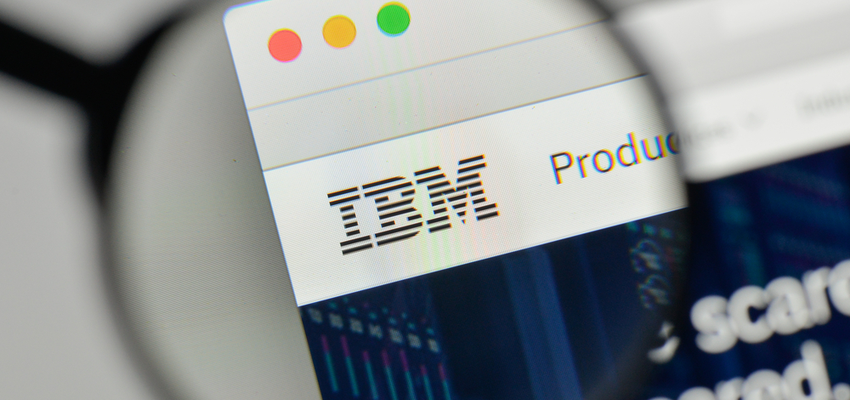
IBM is currently developing an automated payment system designated specifically for vehicles. This system would be able to automate payments for tolls, car sharing, parking, charging and various other payment systems. Upon completion, this technology could revolutionize the automotive industry completely.
Think about the process of parking payments, for instance. Depending on the systems in your city, this process could take minutes. With blockchain, payments would be made in a matter of seconds, without any human interaction necessary at all, and without leaving your car. Same automated payment system can be applied to car sharing, tolls, etc.
Entities involved: IBM
Project status: IBM began working on this blockchain system in 2017. According to the company’s official statement, they’re planning to begin testing sometime in 2020 with a public release to follow.
Sources: IBM press release
Daimler and LBBW Using Blockchain for Business-to-Business Payments
Automaker Daimler has successfully conducted their first blockchain-based payment with the major commercial banking company, Landesbank Baden-Württemberg (LBBW). Although this isn’t the first time a car manufacturer has used blockchain to conduct a payment, it is a huge step forward for the whole industry as Daimler and LBBW have successfully completed a major financial transaction on blockchain without involving any traditional methods.
The entire transaction, including the origination, distribution, allocation and execution of the Schuldschein loan agreement to the confirmation of repayment and interest payments, was carried out through blockchain. Both companies have expressed their interest in developing the technology further. It will be interesting to see what comes out from this partnership.
Entities involved: Daimler, LBBW
Project status: “This pilot project is our first step in testing the wide variety of possibilities for using blockchain technology and assessing this technology’s potential for future transactions and financial processes,” said Bodo Uebber of Daimler. “Simultaneously with launching the Schuldschein, we conduct other projects to determine where blockchains could also be used to increase efficiency and support our business models.”
Sources: Daimler press release
Toyota and MIT Use Blockchain to Rate Driverless Vehicles
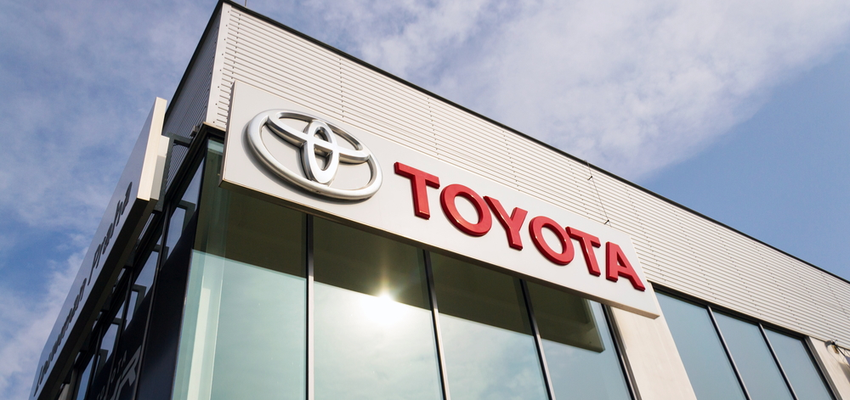
Japanese vehicle manufacturer Toyota has paired with Massachusetts Institute of Technology (MIT) to build safer autonomous vehicles. The partnership was developed in order to enable better autonomous vehicle data management.
At the moment, autonomous vehicles are being tested all around the globe. Yet, much of their information is confined to various systems. Blockchain has the ability to log and share vast amounts of data. With Toyota and MIT’s blockchain, vehicle manufacturers will be able to share autonomous vehicle data in real time. With this shared information, self-driving vehicles will become a product of tomorrow rather than ten or so years from now.
Entities involved: Toyota, MIT
Project status: Since 2017, Toyota and MIT have gathered multiple partners. Their blockchain system is currently being tested throughout the globe.
Sources: Insurance Journal article
IOTA and Volkswagen Use Blockchain for Autonomous Vehicles
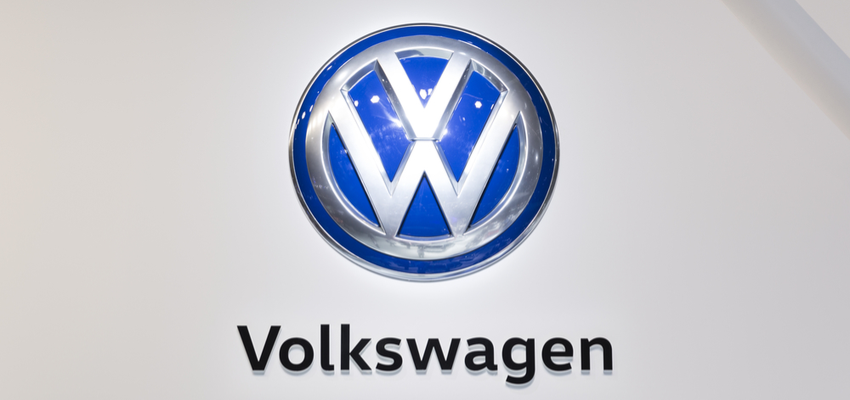
IOTA and Volkswagen have successfully presented their proof of concept for IOTA’s new tangle technology. Volkswagen eventually hopes to use the tangle system to update their autonomous vehicles.
Tangle is a blockchain developed by IOTA that allows for updates to be applied to various technological devices in near real time. It is expected that millions of autonomous or near-autonomous vehicles will be on the road within the next few years. In order for that to happen, there are certain parameters that need to be established first. One is the ability to upload data to these vehicles very quickly.
Entities involved: Volkswagen, IOTA
Project status: The proof of concept concerning IOTA’s tangle technology has been completed. From this point, IOTA has slowly been building the technology. It is expected to enter its testing phase sometime in 2020. Volkswagen has not yet released any information on when they plan to implement it into their current production lines.
Mercedes-Benz Turns to Blockchain to Simplify Their Supply Chain
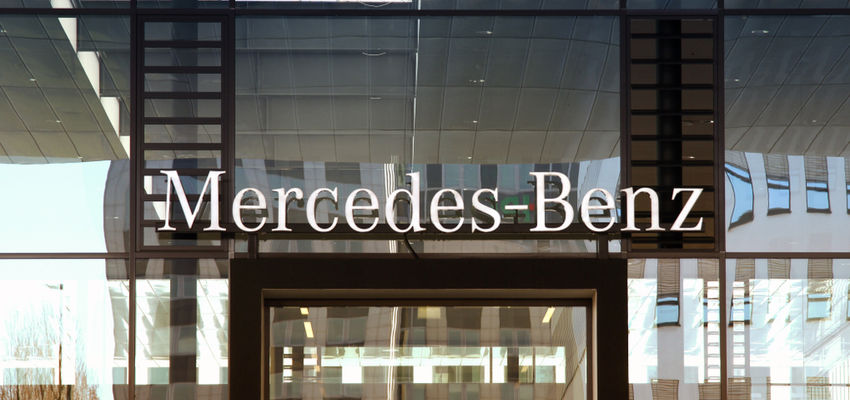
Mercedes-Benz is following in the footsteps of Koopman and IBM by turning to blockchain to bring more efficiency to their supply chain. The German vehicle manufacturer has developed a prototype program that automates transactions as well as tracks vehicles through its supply chain.
The blockchain is open to each of their vehicle manufacturing plants in order to provide more transparency. Mercedes-Benz is just one of many in the automotive industry that has begun researching blockchain in order to cut costs and time in their operations.
Entities involved: Mercedes-Benz
Project status: A prototype of the blockchain is currently being tested throughout Mercedes-Benz manufacturing plants. In the future, Mercedes hopes to expand the use of the blockchain beyond its manufacturing plants into all of its other services, showing extreme interest in the nascent technology.
Sources: Mercedes-Benz press release
Renault Uses Blockchain to Store Customer Information
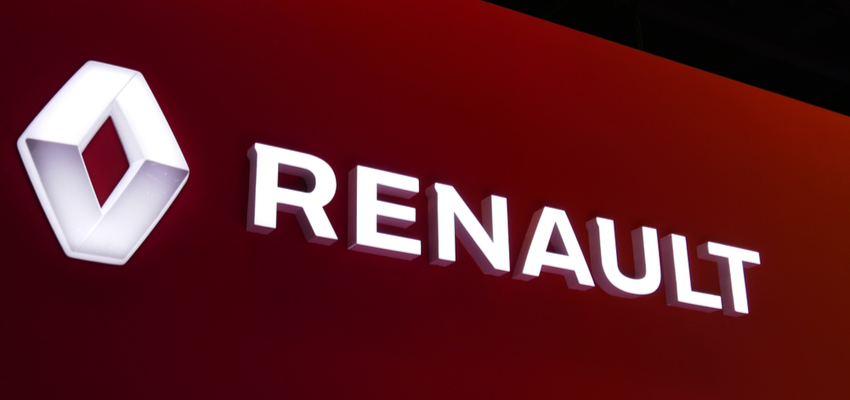
Renault has partnered with Microsoft in order to develop a blockchain-based data storage system. Currently, Renault’s customer information is being stored throughout multiple databases, making it extremely difficult for the company to access customer information quickly. The vehicle manufacturer has turned to Microsoft for help in developing their own blockchain system to speed up this process.
Entities involved: Renault, Microsoft
Project status: Renault announced their partnership with Microsoft in 2017. Since that time, Renault has completed their blockchain and currently utilizes it for the storage of customer information. Renault has expressed further interest in the technology and is currently developing multiple blockchain projects with Microsoft.
Sources: Renault press release
More Blockchain Use Cases to Appear
According to Deloitte Global Blockchain Survey, 73% respondents agree that blockchain will disrupt the automotive industry, and 57% say their automotive companies are in the stage of building awareness and getting educated about enterprise blockchain technology.
Stay tuned for more automotive blockchain use cases to appear in 2019!
Did you like the article? Give your rating





Blockchain Insights
Join our mailing list to receive OpenLedger Insights publications weekly.
Thanks! Please check your inbox to verify your email address.
By clicking “Subscribe”, you’re accepting to receive newsletter emails from OpenLedger Insights every week. You can easily update your email or unsubscribe from our mailing list at any time. You can find more details in our Privacy Policy.